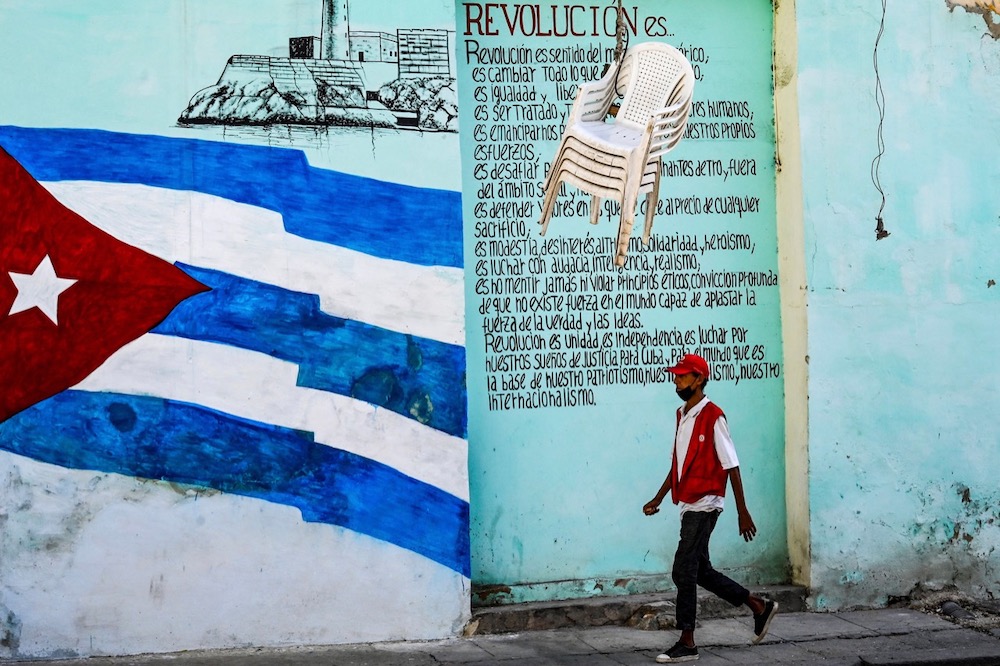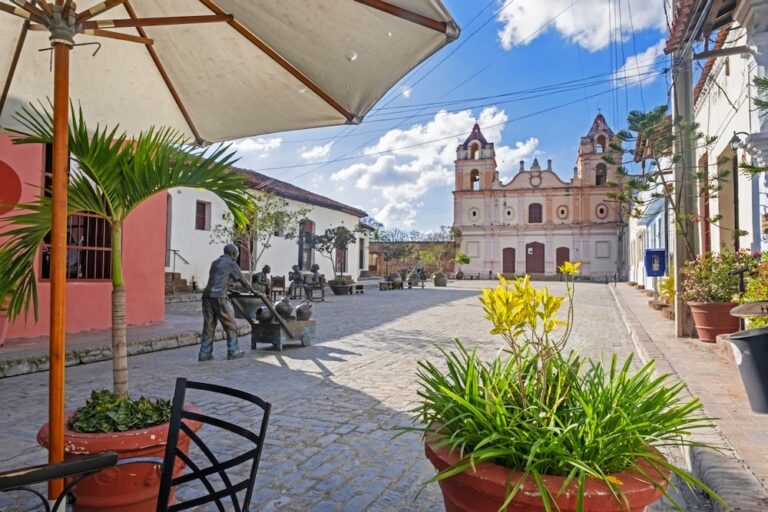The report "Prison or Exile: Cuba's Systematic Repression of July 2021 Demonstrators," documents a wide range of human rights violations committed in the context of the protests, including arbitrary detention, abuse-ridden prosecutions, and torture.
This statement was originally published on hrw.org on 11 July 2022.
Hundreds still held; thousands forced to flee
The Cuban government committed systematic human rights violations in response to massive anti-government protests in July 2021 with the apparent goal of punishing protesters and deterring future demonstrations, Human Rights Watch said in a report released today, the anniversary of the protests.
The 36-page report, “Prison or Exile: Cuba’s Systematic Repression of July 2021 Demonstrators,” documents a wide range of human rights violations committed in the context of the protests, including arbitrary detention, abuse-ridden prosecutions, and torture. The government’s repression and its apparent unwillingness to address the underlying problems that drove Cubans to the streets, including limited access to food and medicine, have generated a human rights crisis that dramatically increased the number of people leaving the country.
“A year ago today, thousands of Cubans protested, demanding rights and freedoms, but the government gave many of them only two options: prison or exile,” said Juan Pappier, senior Americas researcher at Human Rights Watch. “Governments in Latin America and Europe should urgently escalate their human rights scrutiny over Cuba and prioritize a concerted, multilateral response before this human rights crisis becomes even worse.”
On July 11, 2021, thousands of Cubans took to the streets in the largest nationwide demonstrations against the government since the 1959 Cuban revolution. These peaceful protests were a response to longstanding restrictions on rights, food and medicine scarcity, and the government’s response to the Covid-19 pandemic.
Human Rights Watch interviewed more than 170 people in Cuba, including abuse victims, their relatives, and lawyers. Human Rights Watch also reviewed case files and verified photographs and videos sent directly to researchers and found on social media platforms. Members of the Independent Forensic Expert Group of the International Rehabilitation Council for Torture Victims, an international group of prominent forensic experts, provided expert opinion on some evidence of abuses.
Shortly after the protests began, President Miguel Díaz-Canel urged government supporters and security forces to respond to the protests with force. “We call on all revolutionaries to go to the streets to defend the revolution,” he said. “The order to fight has been given.”
One protester, a 36-yeard-old singer named Diubis Laurencio Tejeda, died, seemingly at the hands of the police. The Cuban human rights group Cubalex reports that over 1,400 people were detained, including more than 700 who remain behind bars.
Officers repeatedly detained people who were protesting peacefully, arrested critics as they headed to demonstrations, or prohibited them from leaving their homes for days or weeks.
In most documented cases, detainees were held incommunicado for days, weeks, and sometimes months, without being able to make a phone call or receive visits from their relatives or lawyers. Some were beaten, forced to squat naked, or subjected to ill-treatment, including sleep deprivation and other abuses that in some cases constitute torture.
Cuban courts have confirmed the convictions against more than 380 protesters and bystanders, including several children. Many trials took place before military courts, which contravenes international law. Many were prosecuted for “sedition” and sentenced to disproportionate prison terms of up to 25 years for allegedly participating in violent incidents, such as throwing rocks during the protests.
Prosecutors framed actions such as protesting peacefully or insulting the president or the police, lawful exercises of freedom of expression and association, as criminal behavior. People were convicted on unreliable or uncorroborated evidence, such as statements solely from security officers, or alleged “odor traces” of the defendants found on rocks.
Victims and their relatives said that security forces repeatedly harassed them, in some cases causing them to leave the country.
Orelvys Cabrera Sotolongo, a 36-year-old journalist for the news website Cubanet, was arrested in Cárdenas, Matanzas province, as he left the demonstrations on July 11. Officers interrogated him repeatedly, telling him he would not see his family again. Cabrera was only allowed to make a phone call 10 days after his arrest. He spent part of his detention with eight other detainees in a two-by-one-and-a-half-meter cell, with little to no ventilation, light, or access to water.
He was released on August 19, but officers repeatedly told him he should leave the country. In December, he and his partner fled and have since requested asylum in the United States.
Security agents arrested Elier Padrón Romero, a 26-year-old mason’s assistant, on July 21 in La Güinera, a low-income neighborhood in Havana province. His mother said officers beat him and other detainees saying they would be “disappeared if they continued to think” as they did.
In December, a judge in Havana convicted Padrón Romero of “sedition” because he allegedly incited people to join a July 12 protest and to “push” against a police barricade. He was sentenced to 15 years in prison, which was reduced to 10 years on appeal.
Cuban authorities have also taken steps to dismantle the limited civic space that allowed these protests to occur. In May 2022, lawmakers passed a new criminal code that includes multiple overly broad offenses that could be used to criminalize peaceful challenging of the government. The new code also provides the death penalty for a range of crimes, including “sedition,” a charge brought against many July 11 demonstrators, and “acts against the independence of the Cuban state.”
The number of Cubans fleeing the country has increased dramatically. US Border Patrol detained over 118,000 Cubans between January and May 2022 – compared with 17,000 in same period in 2021. The US Coast Guard has interdicted over 2,900 Cubans on the sea since October 2021, by far the highest figure in five years. Many Cubans have also fled to other countries.
Latin American governments, the United States, Canada, and the European Union should take steps to ensure a multilateral and coordinated approach toward Cuba that prioritizes human rights. They should unequivocally condemn the repression and bring attention to the situation in relevant United Nations bodies, particularly the Human Rights Council.
The UN High Commissioner for Human Rights Michelle Bachelet, who has rarely condemned abuses in Cuba, should publicly condemn these systematic violations before she leaves office in late August.
For decades, the Cuban government has benefited from a dysfunctional response by the international community that has failed to effectively promote progress on human rights in the country, Human Rights Watch said.
The US government’s sweeping economic embargo has isolated the United States rather than Cuba, by enabling the Cuban government to garner sympathy abroad.
Many Latin American governments, recently including Mexico and Argentina, have been reluctant to criticize Cuba and have even praised the Cuban government, despite its dismal human rights record.
“The brave protesters who took to the streets last year in Cuba have every reason to feel they have been abandoned by a large part of the international community,” Pappier said.



